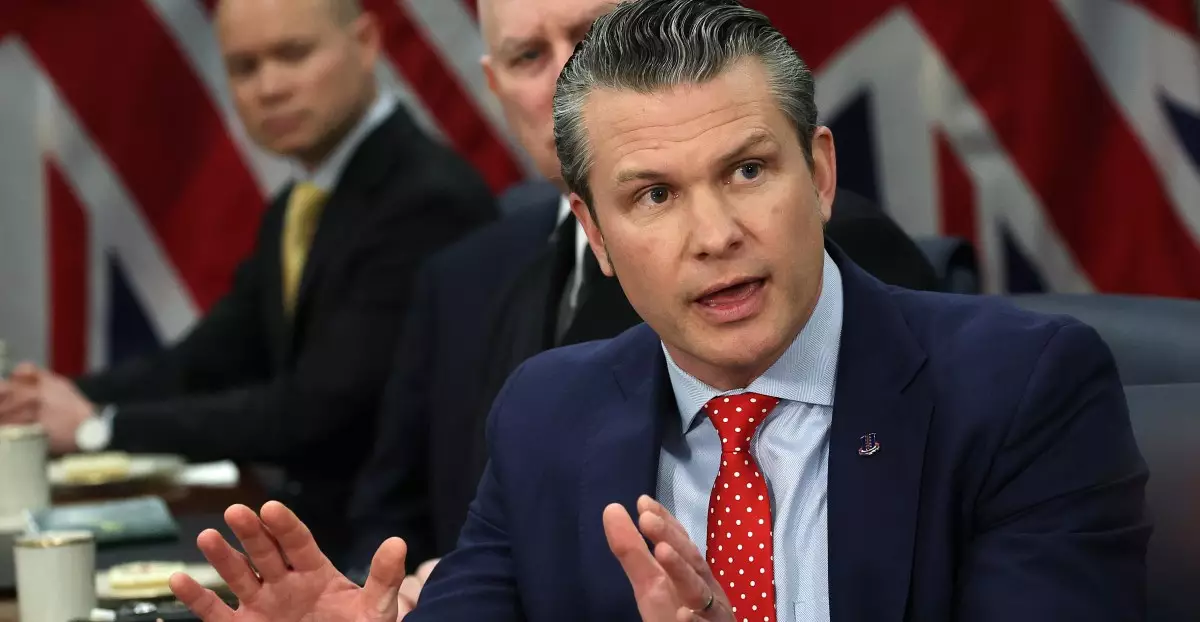In a digital landscape fraught with privacy concerns, an alarming incident recently exposed the fragility of national security protocols. An unintended addition to a military planning chatroom—dubbed “Houthi PC Small Group”—saw The Atlantic’s editor-in-chief, Jeffrey Goldberg, privy to sensitive discussions concerning a military operation against Houthi forces in Yemen. The ramifications of such a breach not only jeopardize operational security but also highlight a potential systemic issue in safeguarding classified information.
As the echoes of bombings cascaded over Yemen on March 15th, Goldberg unwittingly became a silent observer to conversations involving high-ranking officials, including Vice President JD Vance and Defense Secretary Pete Hegseth. The unease is palpable; how could a civilian straddling the world of journalism be allowed into such delicate dialogues? This situation plays out like a real-life suspense thriller, where the stakes involve geopolitical maneuvers instead of mere plot twists.
Faulty Communication Channels
This incident raises profound questions about the integrity of communication channels within government operations. The fact that discussions surrounding classified military strategies blossomed in a conventional messaging app is appalling. Although Signal boasts state-of-the-art end-to-end encryption designed to secure conversations, the effectiveness of these protective measures is nullified when users inadvertently expose their conversations to outsiders.
The National Security Council’s nonchalant admission that they are “reviewing how an inadvertent number was added to the chain” speaks volumes about the need for stricter protocols. It’s baffling that the use of unstipulated platforms like Signal could occur at the highest echelons of power, while national-security lawyers maintain that this app is ill-suited for classified conversations.
Cultural Blind Spots and Risks of Digression
This episode underscores a cultural oversight that pervades not just the Trump administration but perhaps many contemporary governance frameworks. The boundary between personal and professional messaging has blurred considerably, particularly in an age where technology permeates all facets of life, including statecraft. The decision to transfer key dialogues to unsecure platforms could stem from a misguided belief in technology’s invincibility—a concept that repeats itself throughout history, where humans often miscalibrate the balancing act of convenience versus security.
Moreover, the celebratory emoji fired off in the wake of the Yemen bombings paint a disturbing picture. What seems innocuous on the surface reflects a disconnect—a cavalier attitude amid discussions of life and death. The flexed bicep, American flag, and fist bump serve as troubling icons of triumph when lives are at stake, creating a jarring juxtaposition between political bravado and the visceral reality of warfare.
Reassessing Accountability and Protocols
As technology interweaves more intricately with global governance, the need for stringent protocols becomes more pressing. It is essential for governmental structures to reassess both the platforms utilized for classified discussions and the training procedures for officials involved in those discussions. It is no longer permissible for the barriers of security to be breached by mere accidents, especially when lives hang in the balance.
In an era where each keystroke transmits weighty implications, adopting sound judgement in communication becomes a paramount responsibility. The events surrounding the “Houthi PC Small Group” exemplify the disarming ease with which national security can be compromised. It’s time policymakers step up and confront these challenges head-on, for the sanctity of operational security is not merely a technicality—it’s a necessity in protecting our global standing and citizens.

